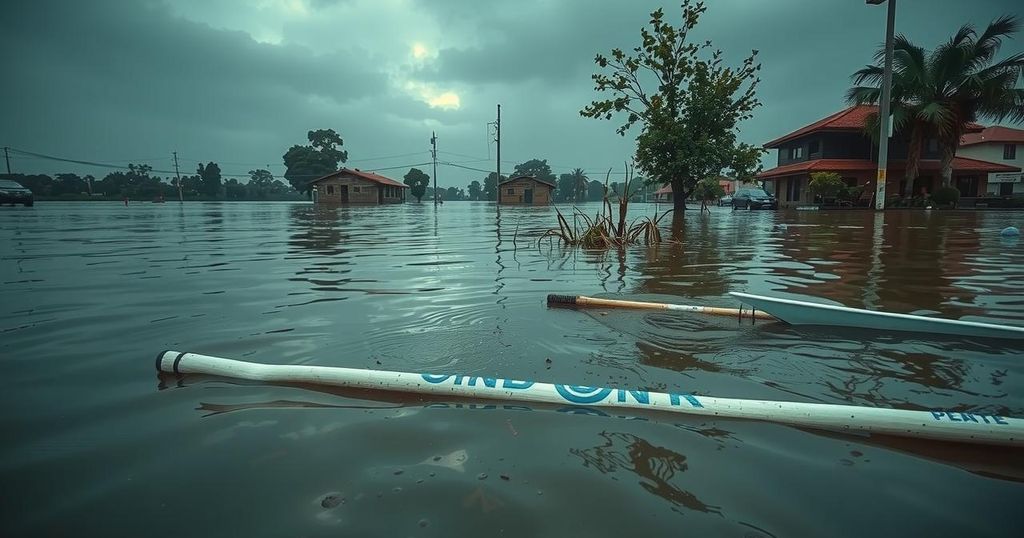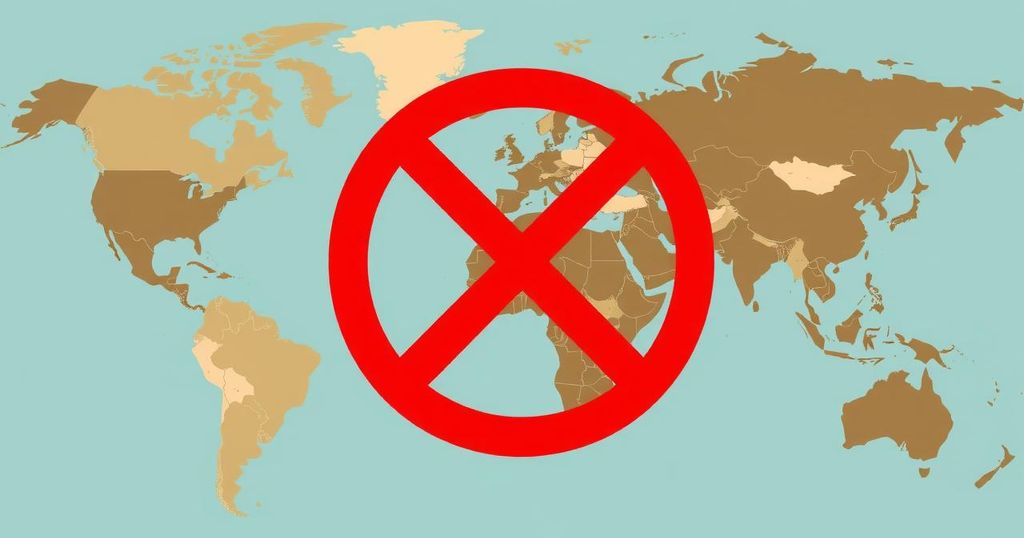IRC Issues Urgent Warning Over Rising Cholera Cases Amid Flooding in Nigeria and Niger
The IRC has reported a drastic increase in cholera cases in Nigeria and Niger following severe flooding, highlighting a 239% rise in cholera deaths in Nigeria and confirmed cases in Niger. The IRC is expanding health services and preventive measures in response to this health crisis, citing a critical need for additional resources to manage the outbreak and provide necessary aid.
The International Rescue Committee (IRC) has raised alarms regarding a significant surge in cholera cases following severe flooding in Nigeria and Niger. In Nigeria, there has been an alarming 239% increase in cholera fatalities from the previous year, with a total of 359 deaths reported as of 2024, according to the Nigerian Public Health Agency. Within Borno State, the IRC’s cholera treatment unit at the Gubio Internally Displaced Persons (IDP) camp is overwhelmed, operating at full capacity. Meanwhile, Niger has documented 881 cholera cases and 18 deaths linked to floods that have impacted more than 1 million residents. The IRC is actively responding to this outbreak in Nigeria while meticulously monitoring the situation in Niger. In light of the catastrophe unleashed by the floods, which have affected upwards of 1.4 million people across West Africa, the IRC emphasizes the urgent need for increased resources to effectively address the growing humanitarian crisis. Access to clean water in heavily impacted areas is crucial for combating cholera, and the IRC is diligently working to prevent any further spread of the disease. As part of its response, the IRC is intensifying its efforts within Nigeria, enhancing health, sanitation, and hygiene initiatives to save lives. In collaboration with the state government, the IRC has established a fully equipped 20-bed cholera treatment facility within the Gubio IDP camp, staffed by trained health professionals who are providing round-the-clock care. This facility has quickly reached its capacity, prompting the IRC, which is the sole health service provider authorized in the camp, to seek expansion opportunities. Furthermore, oral rehydration points have been set up in areas affected by flooding, particularly within IDP camps, to deliver immediate treatment for acute watery diarrhea. The IRC teams are engaging local communities to conduct case searches for suspected cholera instances while ensuring that sufficient medical supplies and rehydration fluids are stockpiled to prepare for possible outbreaks.
The current cholera outbreak in Nigeria and Niger is a direct consequence of severe flooding that has aggravated existing humanitarian crises within the region. The ongoing climate-related disasters have not only increased cholera risks due to compromised sanitation and limited access to clean water but have also heightened vulnerability among affected populations. The IRC’s efforts are aimed at providing crucial health services amid this escalating crisis, which necessitates urgent attention and resources to prevent further loss of life and manage the outbreak effectively. The unprecedented displacement due to floods compounds the challenges faced by humanitarian organizations and local health agencies; thus, the IRC’s proactive measures include health interventions and community engagement to combat cholera’s spread while preparing for future climate events.
In summary, the situation regarding cholera outbreaks in Nigeria and Niger due to severe flooding is critical. The IRC’s efforts to scale health services, establish treatment facilities, and provide immediate assistance highlight the urgent need for resources to address the escalating humanitarian crisis. Collaborative action from local and international partners is essential to control the outbreak and safeguard vulnerable populations from further health risks as climate-related challenges continue to grow.
Original Source: www.rescue.org




Post Comment